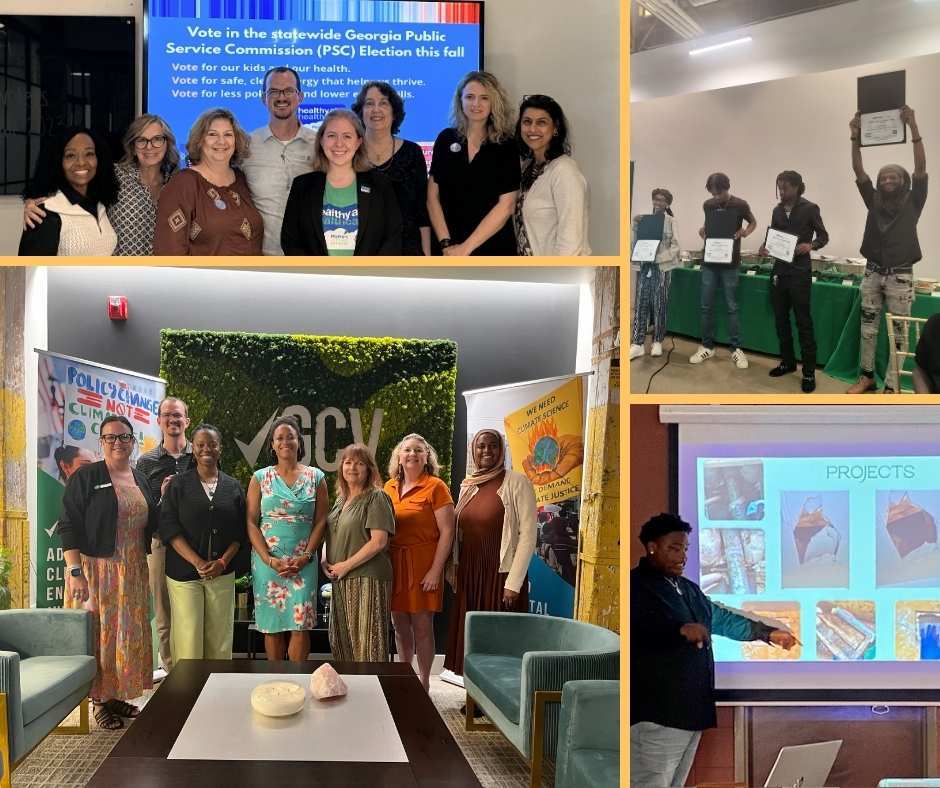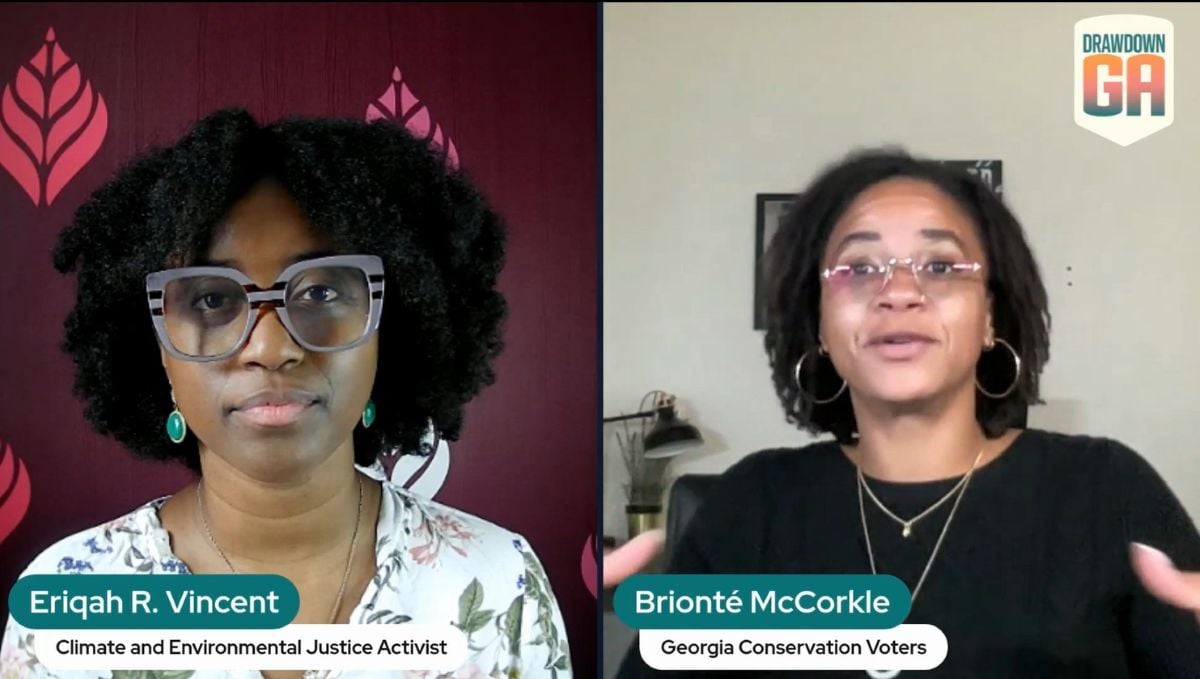Until recently, the centrality of women to climate change - both in terms of the impacts and the solutions - was not widely understood in a comprehensive way. The research certainly existed to prove the negative impacts to women, especially women of color. And organizations all over the world were responding to these concerns in very local ways. But was there a global appreciation for how dramatic the challenges are that climate change poses to women and their wellbeing? And was there a real appreciation for what women had already been doing in response?
 Women's Leadership and Climate Change
Women's Leadership and Climate Change
At Agnes Scott College, three things have converged to bring women’s leadership and climate change to center stage on our campus.
Artists Responding to Climate Change
First, our sustainability team joined the Dalton Gallery on campus in hosting an art exhibit in 2017 focused on artists responding to climate change.
Events that accompanied the exhibit included talks by several of the artists, as well as talks by climate experts and activists. Attendance at these events was at capacity and included the greater metro Atlanta community along with the Agnes Scott community. Viewing the art and participating in the conversation around it raised awareness in many ways, shining the spotlight on women’s leadership and climate justice.
Drawdown, Climate Change Solutions, and Women's Rights
The second thing that happened was the publication of the book Drawdown.
Our campus sustainability team heard both Paul Hawken and Katharine Wilkinson, the editor, and the senior writer, speak on several occasions about the results compiled by the Drawdown researchers. Perhaps the most revelatory of all was the fact that the list of most effective climate solutions to scale includes three solutions related to women and girls: support for women smallholders of agricultural land; securing women’s rights to family planning, and educating girls.
Even more groundbreaking is the clear conclusion that if these three solutions are combined, they become the single most impactful solution for addressing climate change.
Agnes Scott Students Concerned About Social Justice and Climate Change
Third, and most important, Agnes Scott students have been, and still are, becoming more engaged in environmental and climate justice on- and off-campus. This is partly based on the specific events taking place at this moment in time, including the two described above, but is largely inspired by these students' own concerns for social justice combined with their growing knowledge of the global implications of climate change. They are quite aware that the science and the activism are not new, but they are also aware of the need for more attention to these issues as the climate crisis worsens.
College Goal: Reach Climate Neutrality by 2037
In 2017, the college was almost 10 years into an effort to become a more sustainable campus with the goal of reaching climate neutrality by 2037. Students were engaged in the college’s climate work and began to connect with similar work around the region as well as back at home during breaks and during study trips abroad.
At the Forefront of Women's Issues
Since its founding as a women’s college in 1891, Agnes Scott has always had student leaders and alumnae working at the forefront of women’s issues. Environmental and climate justice - tied to women’s leadership - are no exception. But we can do more.
Recently the Skoll Foundation shared a video of Wanjira Mathai, World Resources Institute’s Vice President & Regional Director for Africa, speaking at an event entitled “The Global Injustice of the Climate Crisis.” Her words at that event resonate deeply with us at Agnes Scott:
“You know nature and justice have been inextricably linked forever. This is not something new. This is something that women and young people for generations have always understood and even practiced and taught. So, it’s one of those things that … young people, especially now, have begun to put a face to - what climate injustice looks like. And their anger and their sense of urgency has just changed our tenor and has made us stand and listen.”
Her words are an important reminder that the first step toward solving any problem, at any scale, is to listen. And women leaders are predisposed to doing this. They have been doing this. As Ayana Elizabeth Johnson and Katharine K. Wilkinson say in their introduction to All We Can Save,
“Our visionaries, many of them women and people of color, have been not only warning us but illuminating paths forward.”
Join the Annual Women's Global Leadership Conference, Building a Better World: Women and Climate Justice
If you’re interested in how women are leading change for climate justice, join the Center for Sustainability at Agnes Scott on September 23-24, 2021 for the second annual Women’s Global Leadership Conference, Building a Better World: Women and Climate Justice. Wanjira Mathai and Pat Mitchell will be the keynote speakers in the opening session on September 23. For more information, click here.





.jpeg)



